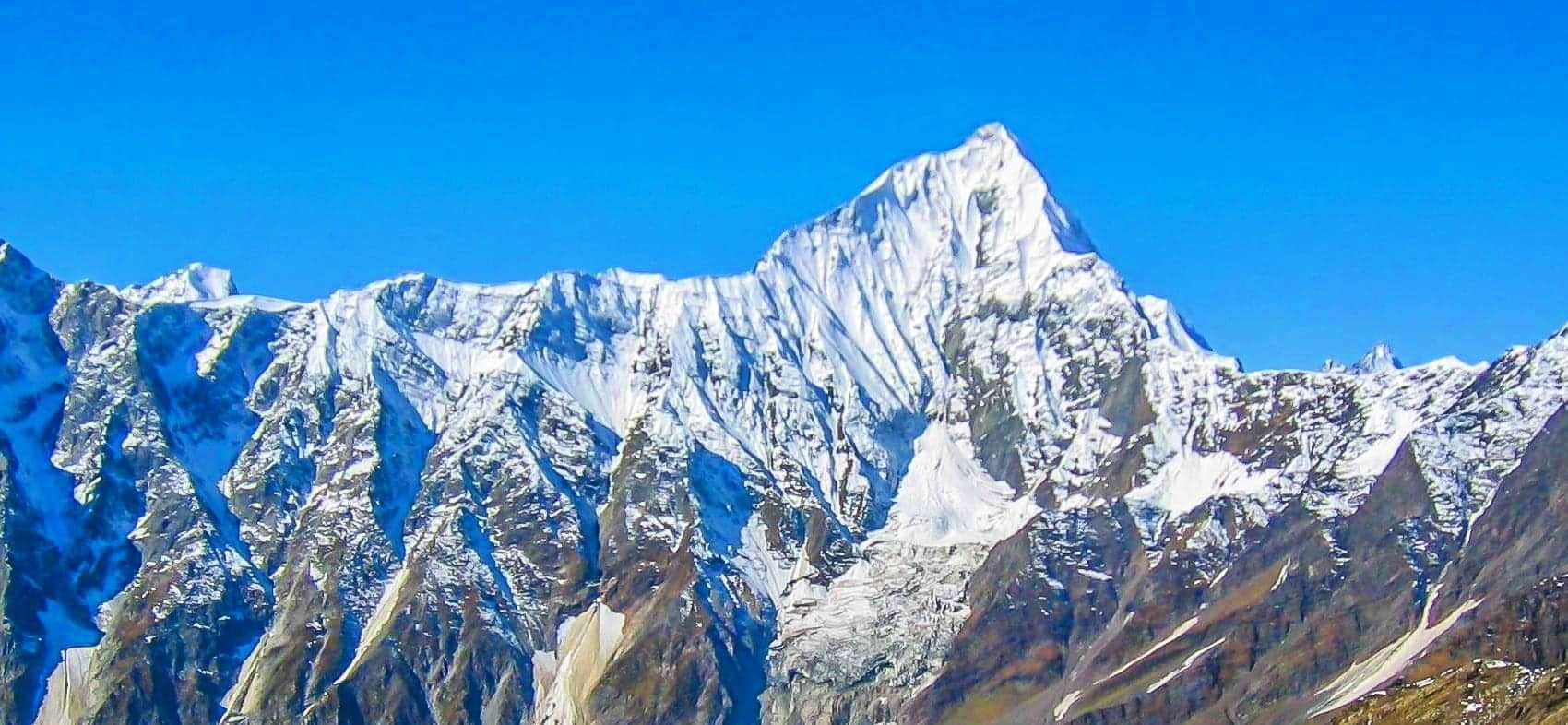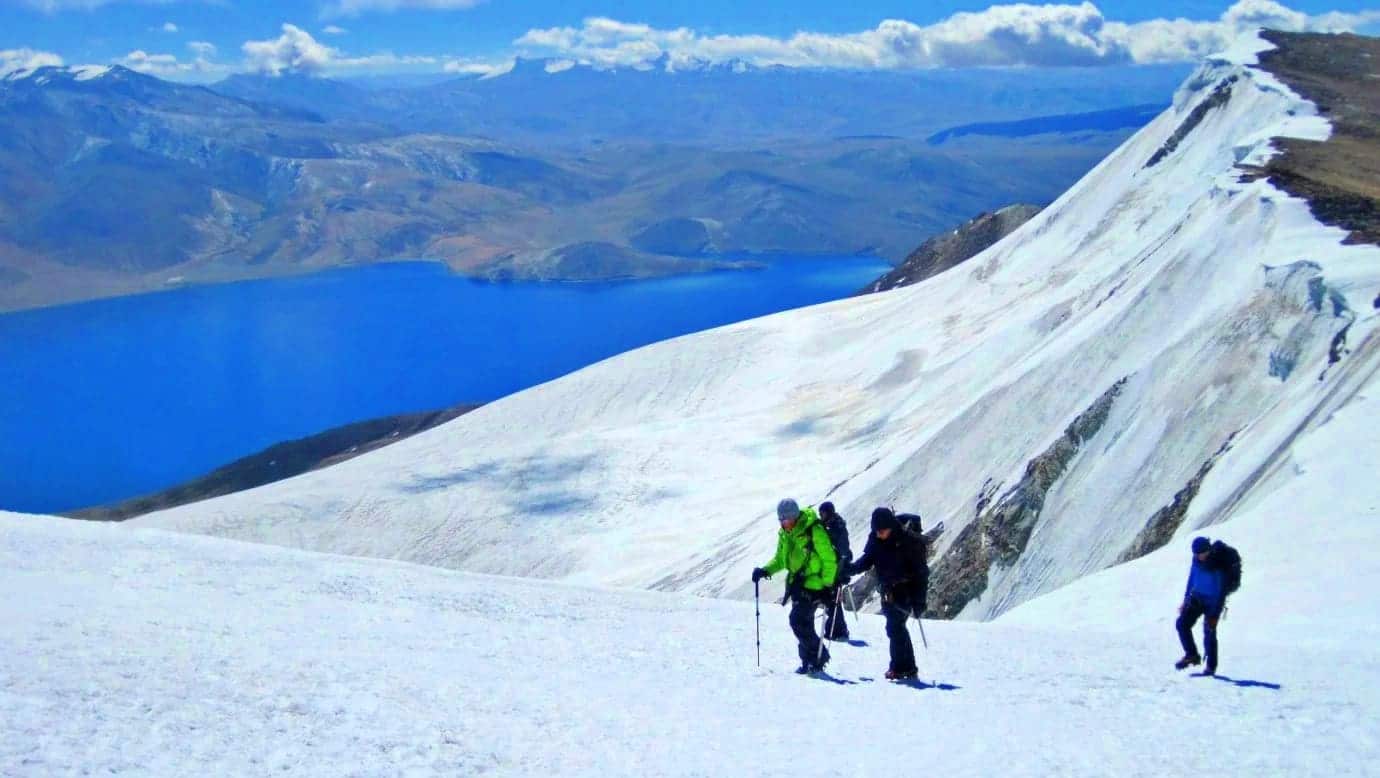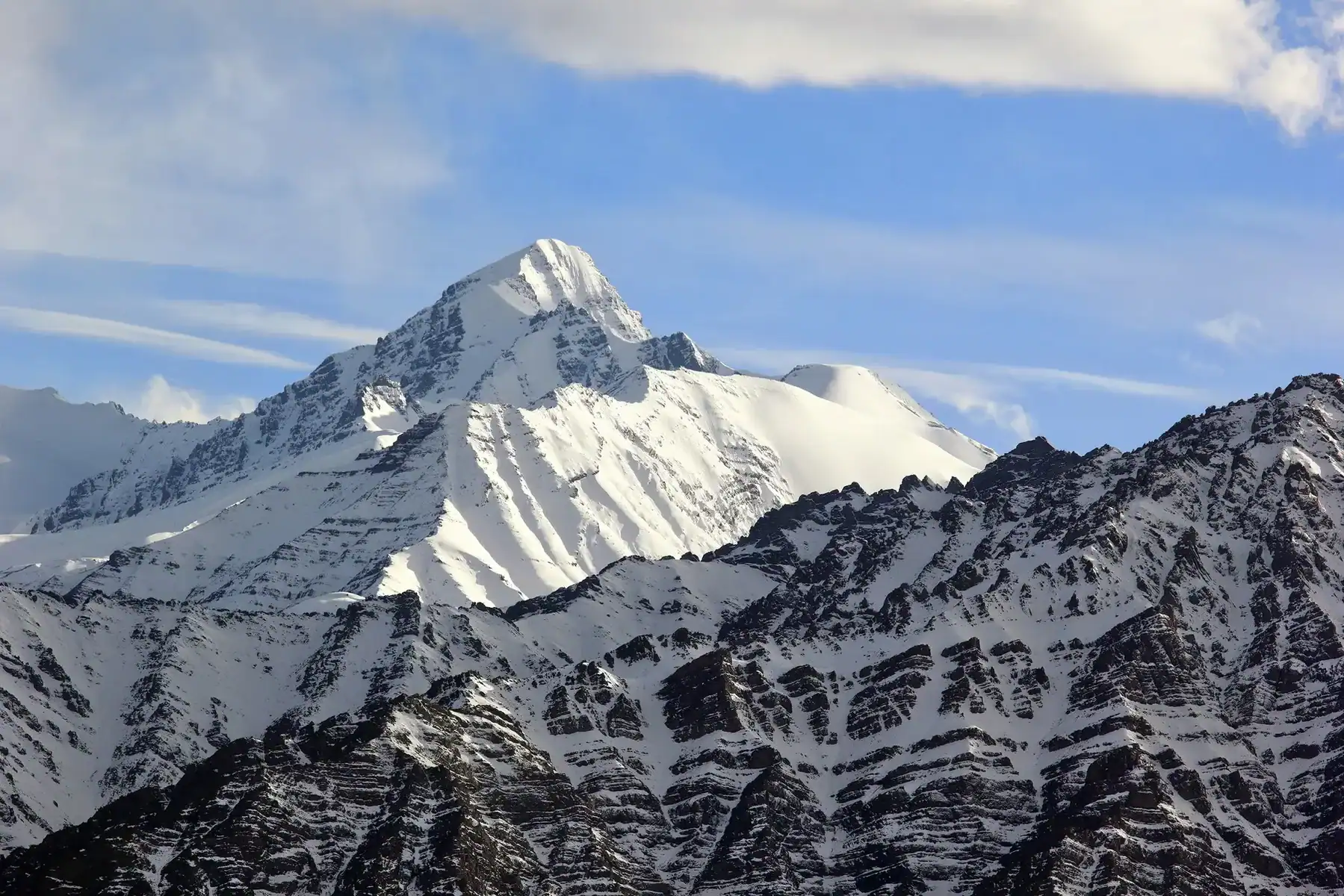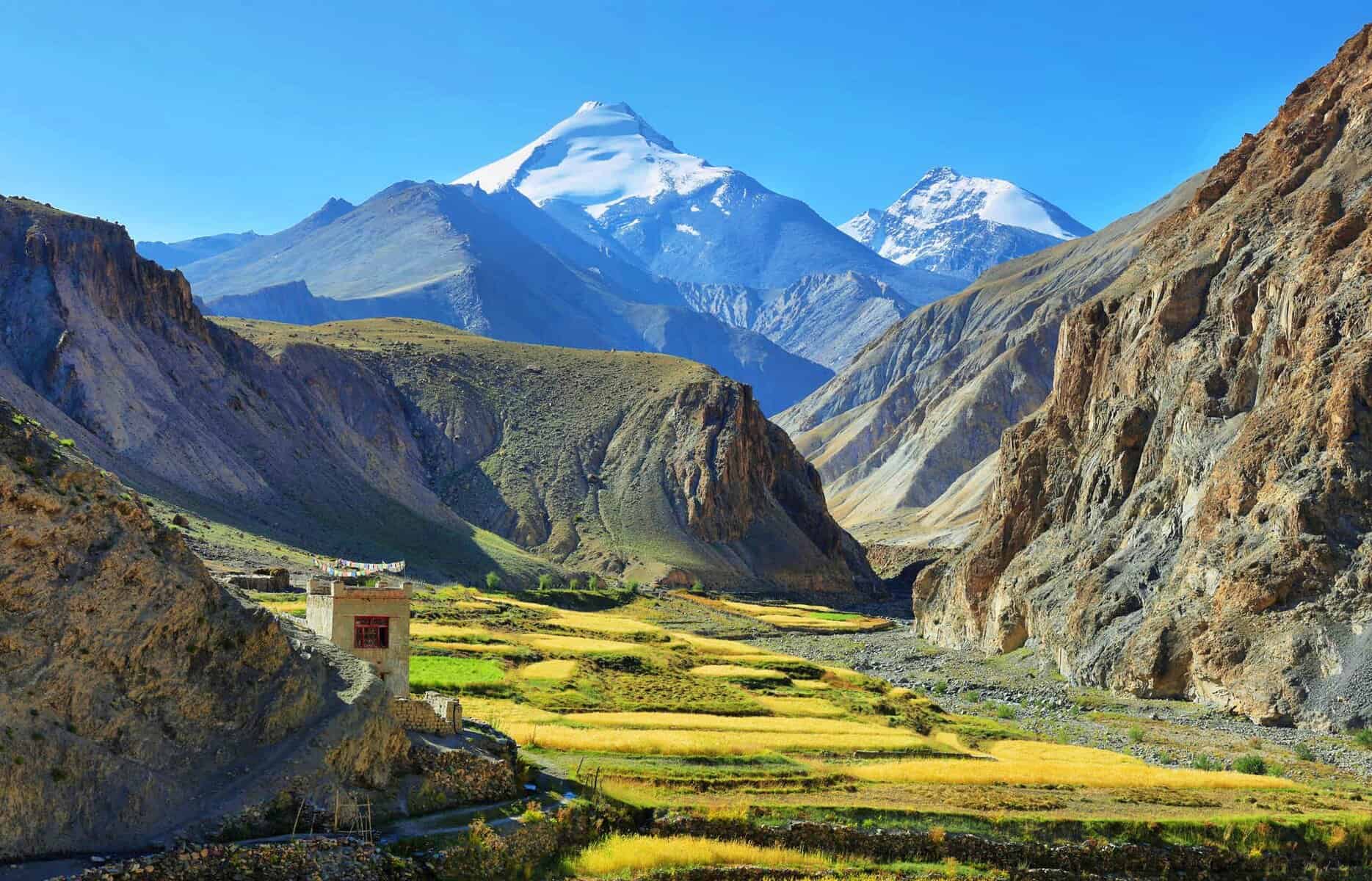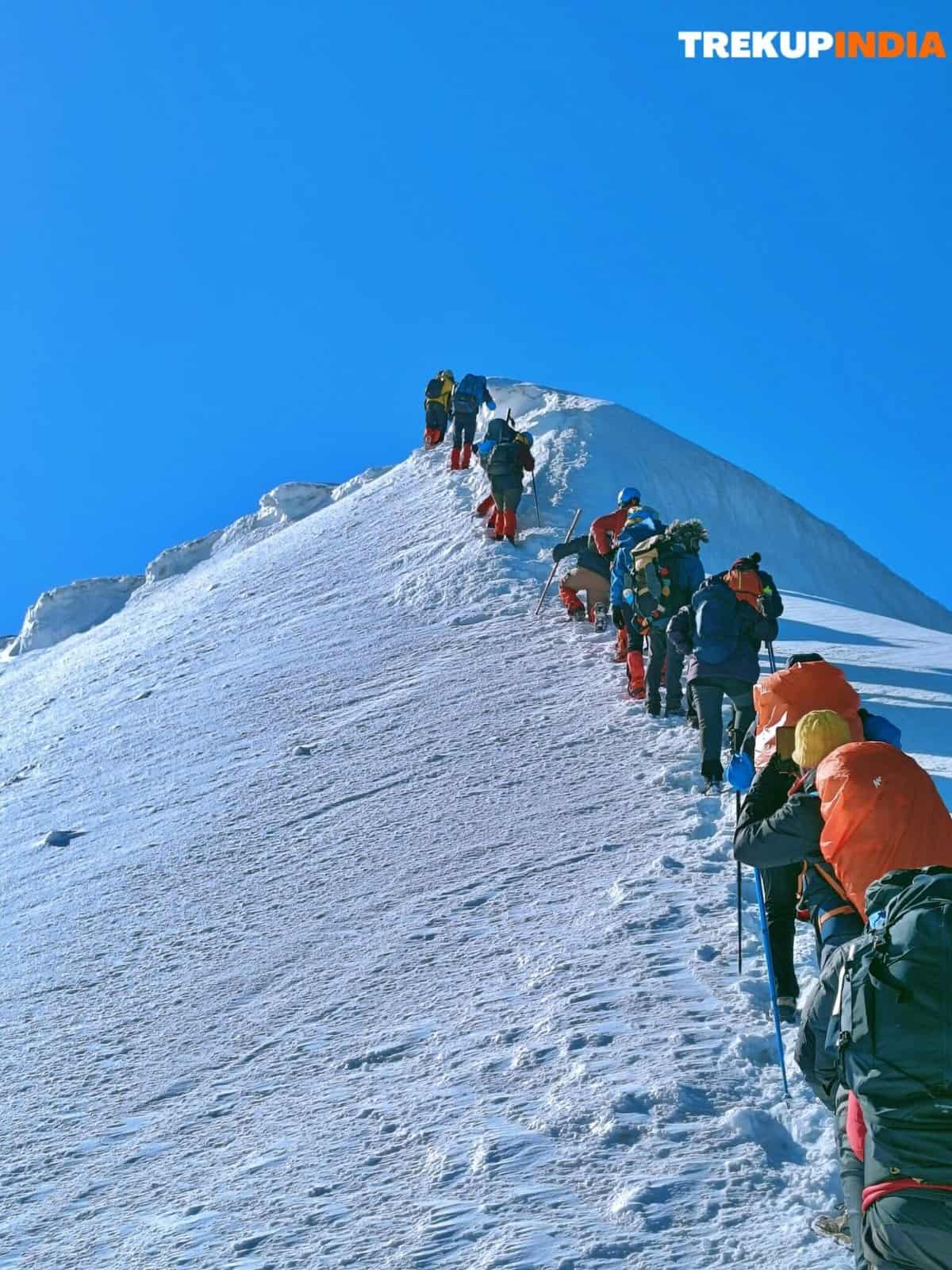Trek Grade
Moderate
Highest Altitude
14698 ft
Base Camp
Manali
Best Time
June - Mid Oct
Trek Distance
34 Km
Deo Tibba Base Camp Trek
Deo Tibba Base Camp Trek is in the Manali region of Himachal Pradesh. The picturesque landscape is studded with dense green forests of spruce, oak, pine, fir, and silver birch, along with the enthralling view of snow-covered mountains like Norbu Peak, Jagatsukh Peak, Indrasan and Deo Tibba. On this trek, you would be catching sight of snow domes, glaciers, rock fall areas, and ridges and walk along steep ice passes along with learning about local traditions and their religious Indian mythology like the name is derived from Deo (God) and Tibba (Hill) which is believed to be the place where gods gather. There is another main attraction on this trek, like the emerald blue waters of Chopta Chandartal Lake, which lies at the foot of Deo Tibba peak. You would also enjoy scenic vistas like lush green meadows, alpine forests, pristine waterfalls, and high-altitude lakes.
Trek Cost
- Stay will be on a twin-sharing basis in tents
Fix Departure Dates
Deo Tibba Base Camp Trek Videos
Videos by experts watch these videos to prepare well for a Successful Trek

Want To Trek Like Pro?
Basically, watch these videos if you want to trek the same way professional trekkers do and make your skills better. These videos contain useful tips and techniques to further improve your trekking skills itself. These videos actually help both new and experienced trekkers improve their trekking skills. These videos definitely provide useful tips that make your trek better. We are seeing that these videos by Trekup India experts will only help you make your trekking skills better.
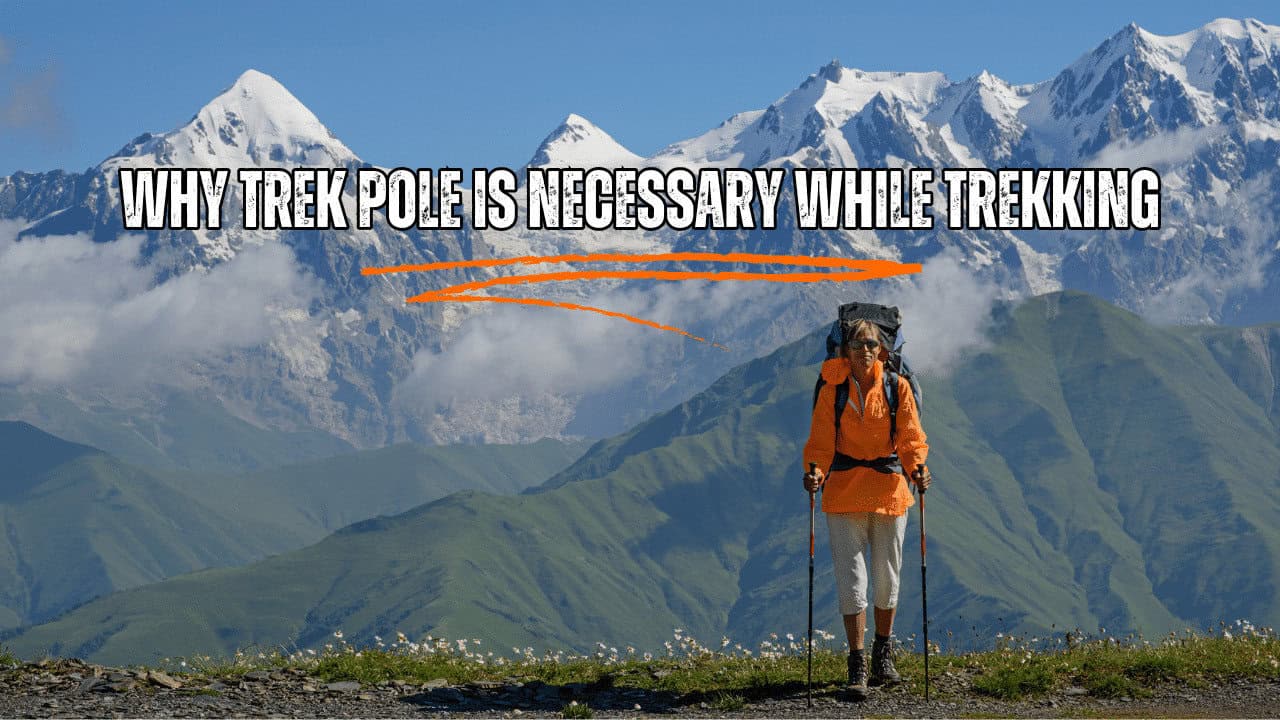
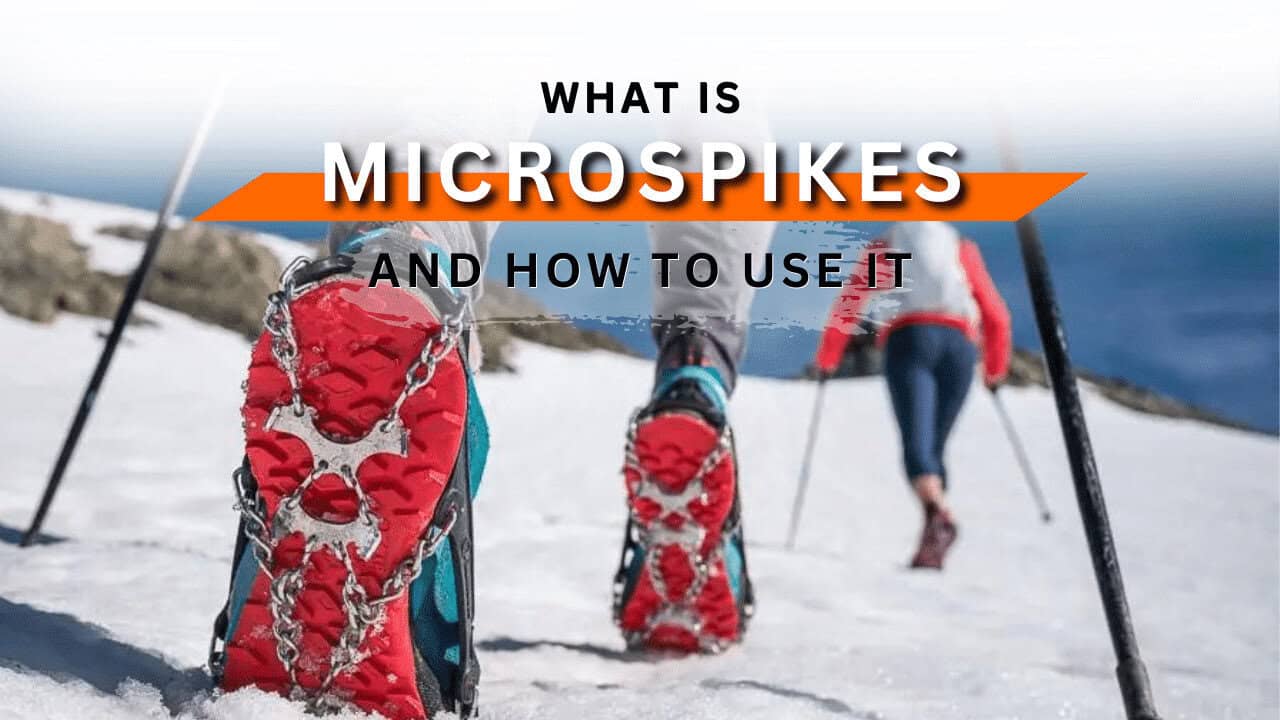
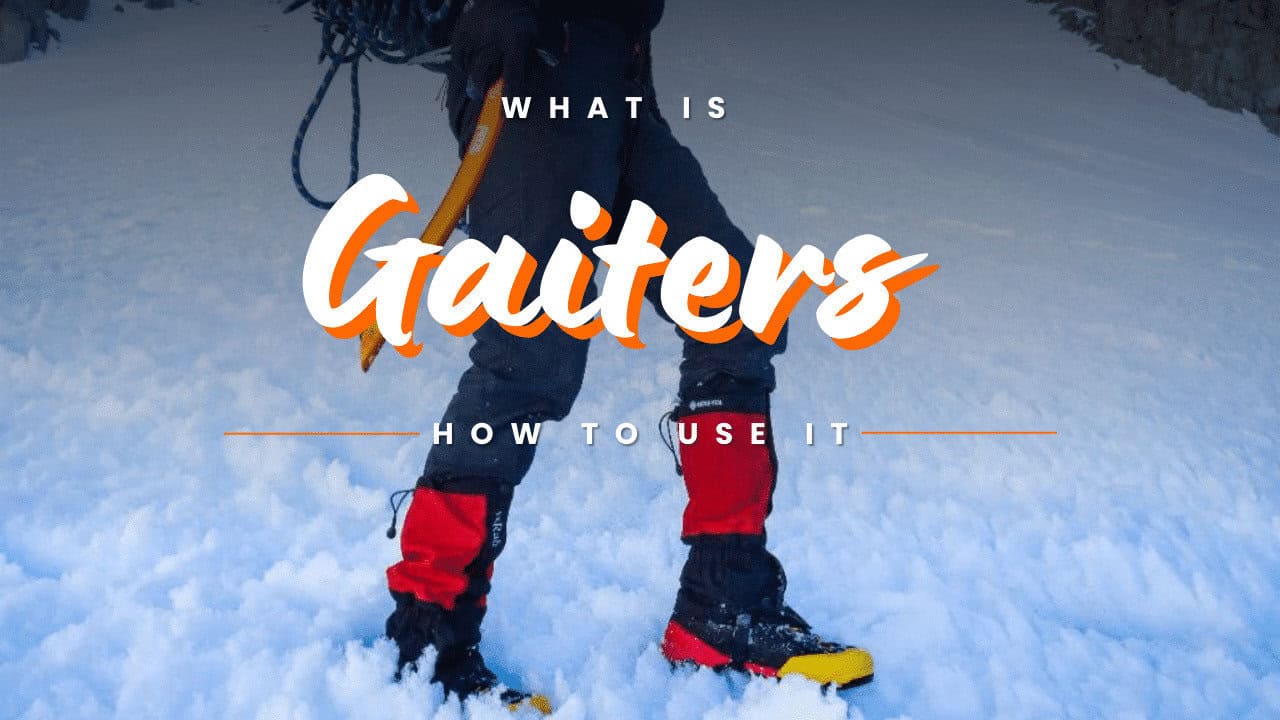
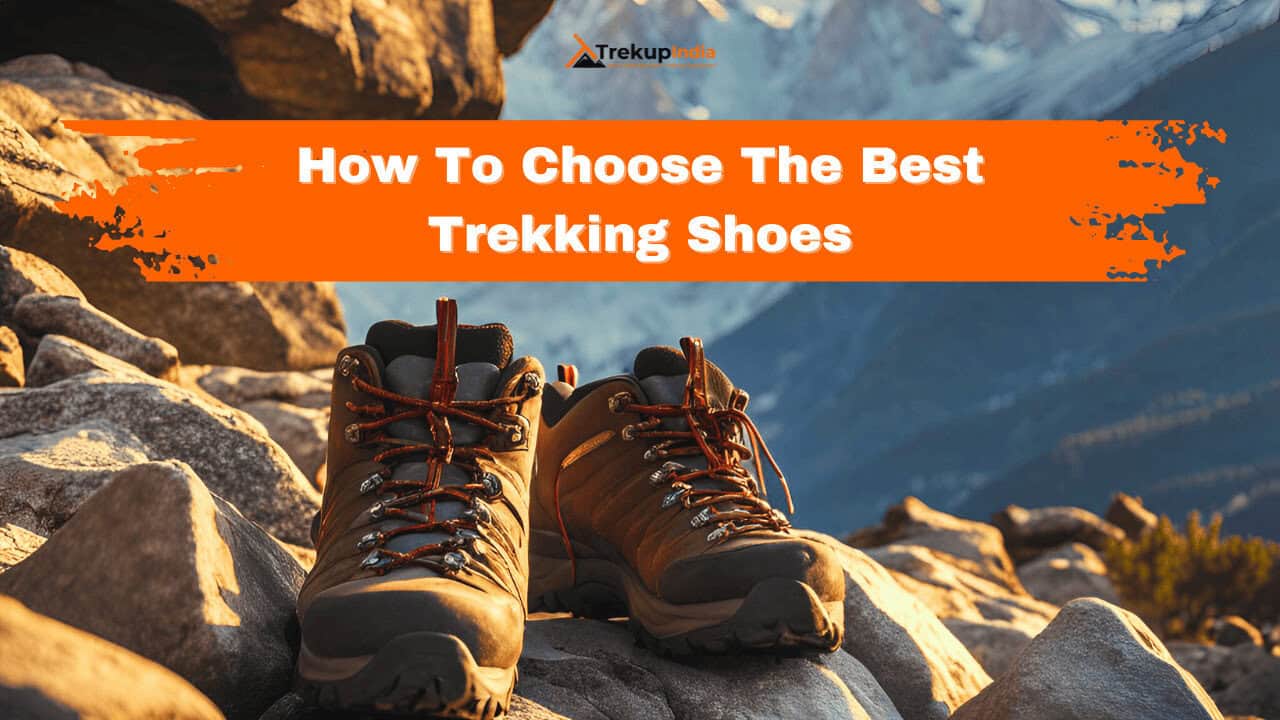
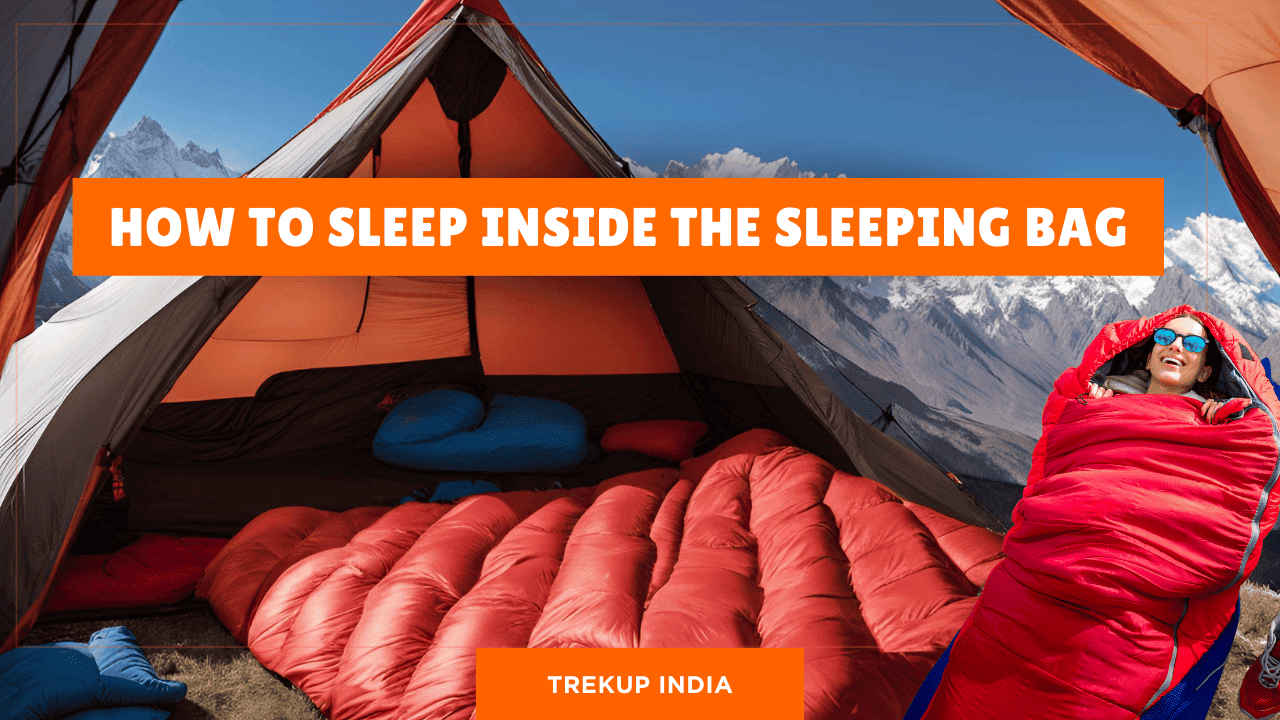
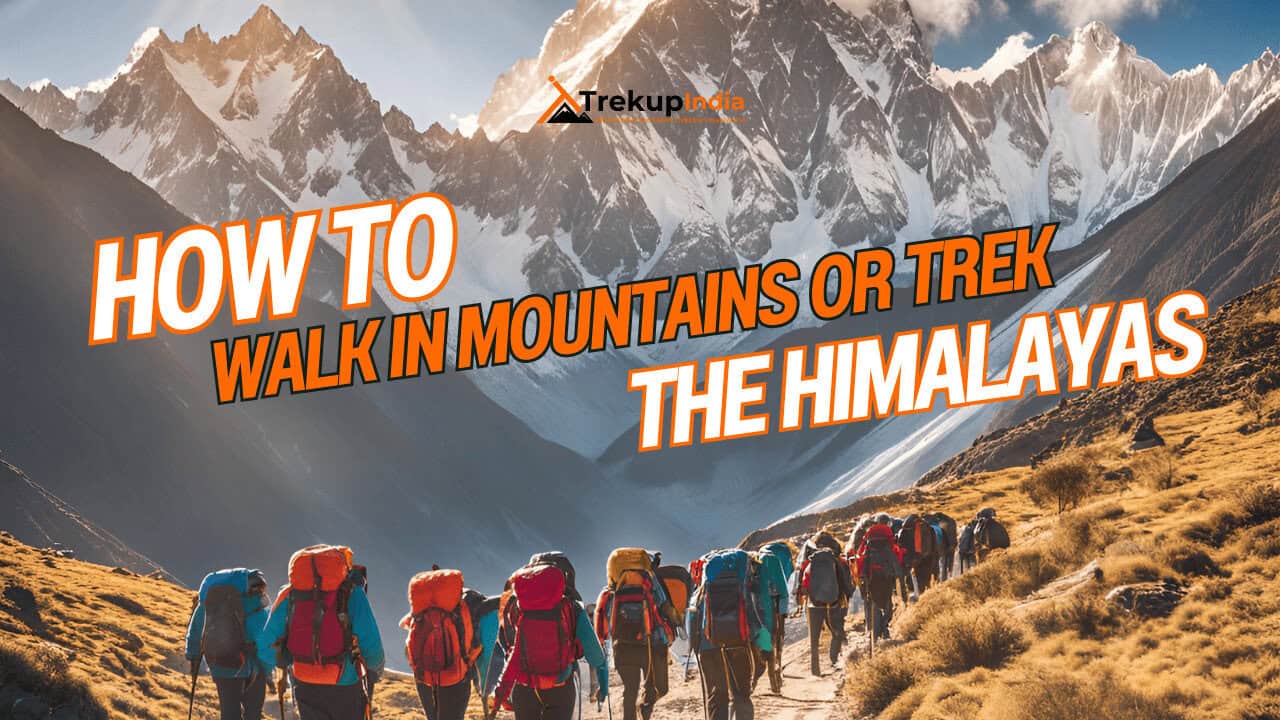
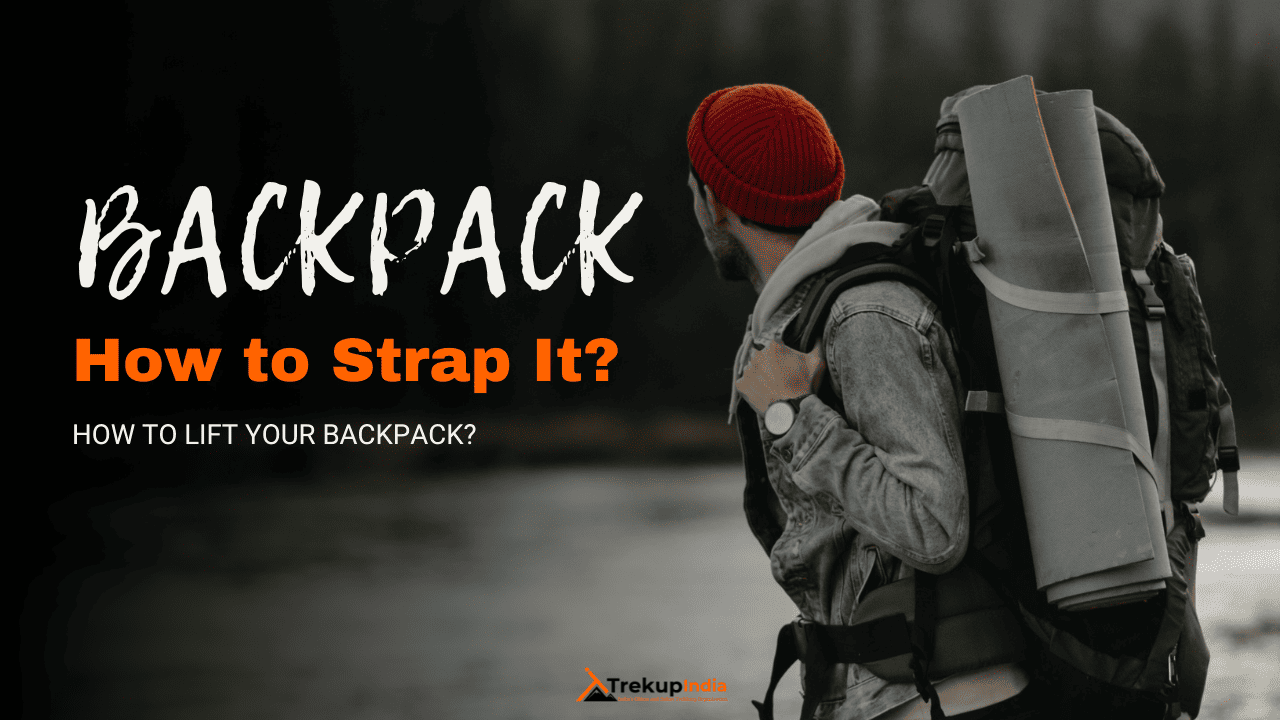
Know Everything About Acute Mountain Sickness
Acute Mountain Sickness occurs when people trek to high altitudes above 8,000 feet. This condition itself develops further due to reduced oxygen levels at such heights. Basically, as you go higher up, the air pressure and oxygen levels decrease, which causes the same problem. Acute Mountain Sickness surely causes headache, nausea, vomiting, and dizziness in affected persons. Moreover, peoples also experience difficulty in sleeping during this condition. To avoid mountain sickness, you should actually trek up slowly to higher altitudes. To learn further about this condition itself, watch the videos by Trekup India.
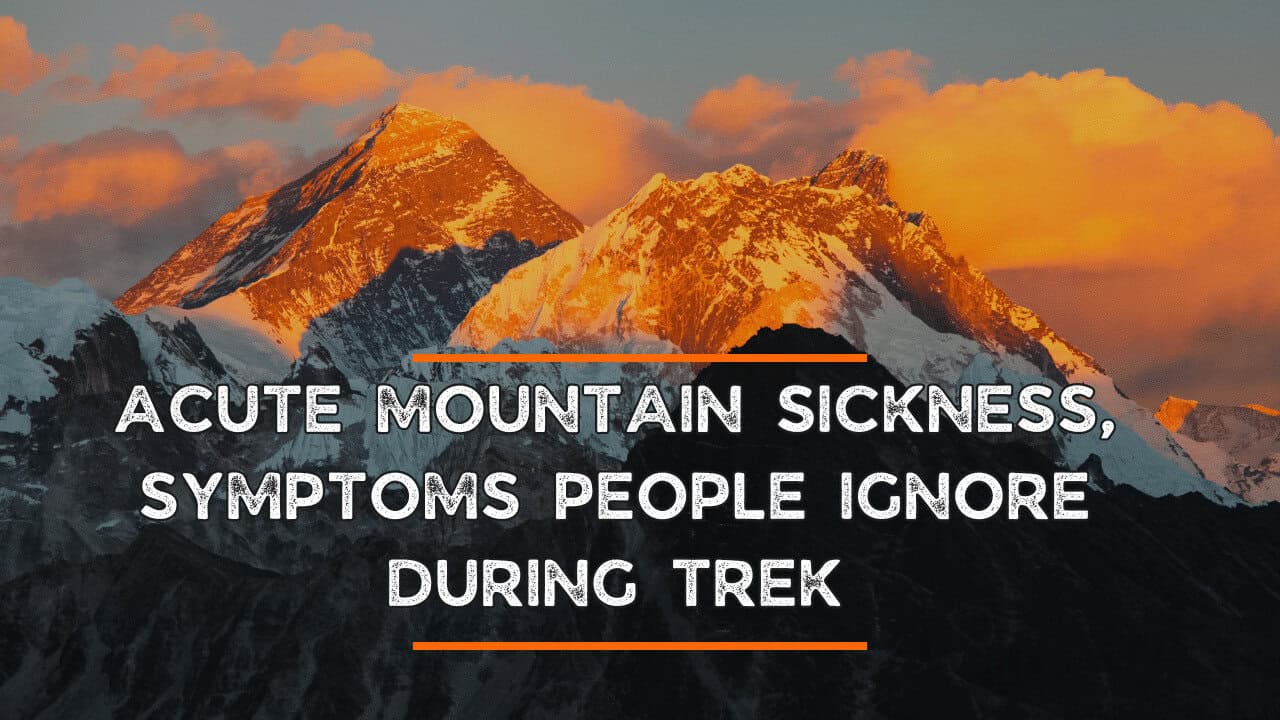
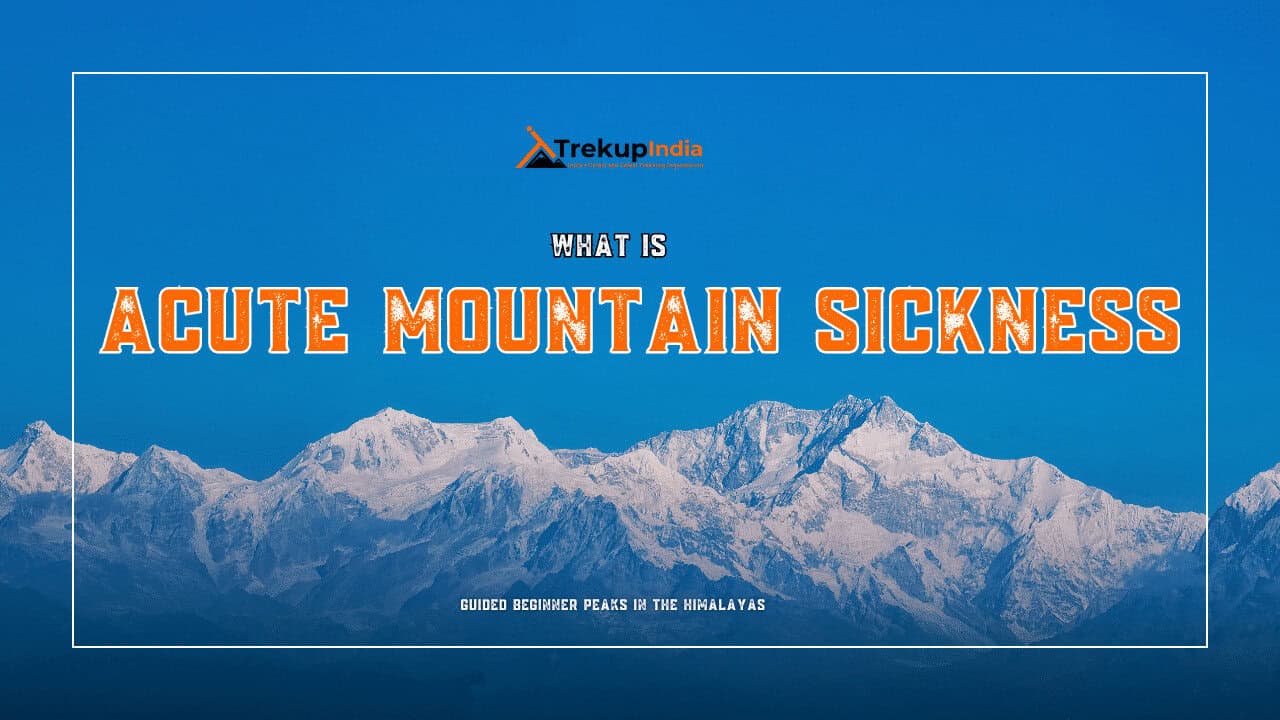
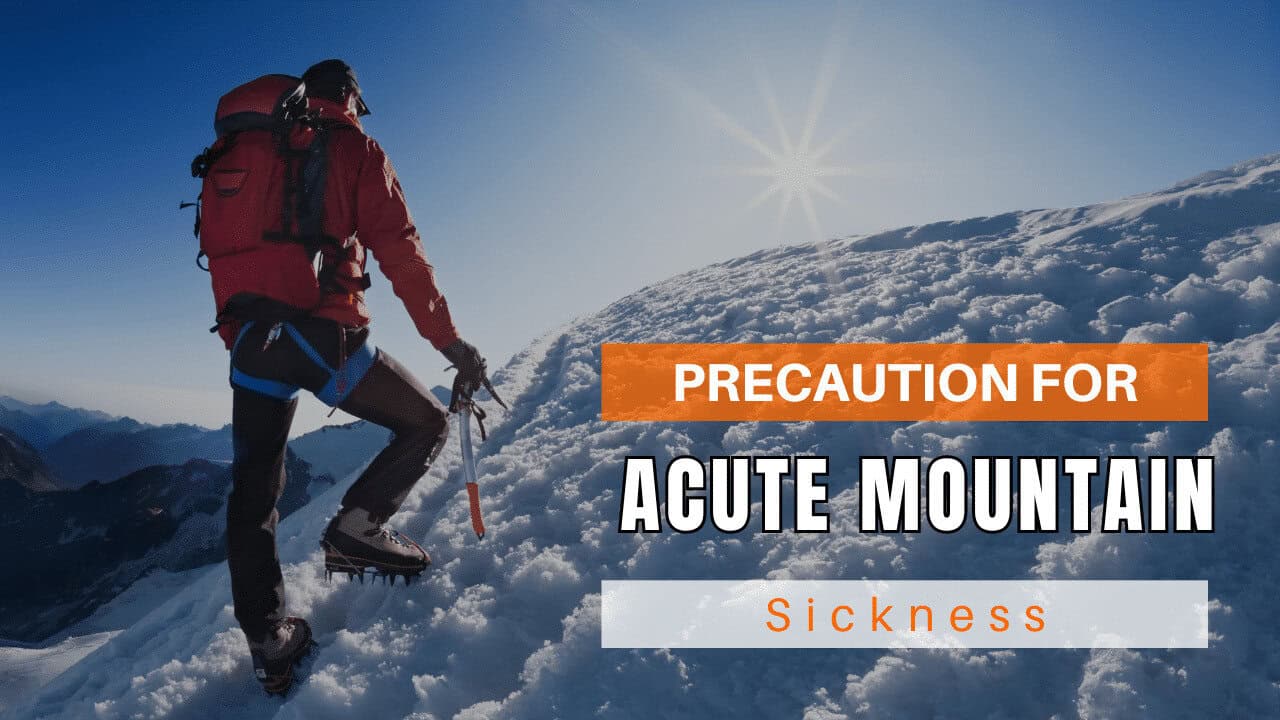
Day Wise Detailed Itinerary of Deo Tibba Base Camp Trek
Day 1: Manali to Khanol by Road, Khanol to Chikka by Trek
- Altitude: Manali (6726 ft / 2050 mtr), Khanol (8858 ft / 2700 mtr), Chikka (10,499 ft / 3200 mtr)
- Altitude Difference: Manali to Khanol (2132 ft / 650 mtr), Khanol to Chikka (1641 ft / 500 mtr)
- Drive Distance: 20 Kms
- Drive Duration: 1.5 Hrs
- Trek Distance: 2 Kms
- Trek Duration: 3 Hrs
- Stay: Overnight stay at the campsite.
- Meal: Dinner
- Trek Grade: Gradual
This day marks the first day of the trekker’s journey, including a short drive followed by trekking. After having a hot tea, the trekker would start the travel by road towards Khanol, and you would also pass through the last village of Jagatsukh. Once you have reached Khanol, you will be met by the Trekup India team, who will prepare you for the trek ahead. The trail towards Chikka is gradually uphill with the pine forest around, and as you reach Chika campsite, you will also see Nag Mandir. After the trek, you will sleep for the night at this campsite.
Day 2: Chika to Seri by Trek
- Altitude: Chikka (10,499 ft / 3200 mtr), Seri (11,811 ft / 3600 mtr)
- Altitude Difference: 1312 ft / 400 mtr
- Trek Distance: 6 km
- Trek Duration: approx. 6 hrs
- Stay: Overnight stay at the campsite.
- Meal: Breakfast, Lunch, and Dinner
- Trek Grade: Gradual to Moderate
On the second day of the trek, you would be woken up by the scent of pine forest and a chilly, fresh breeze. As we began the hike, the trail would be along the Jagatsukh River, and we would then pass through the thick forest. We would pass through the rough trail with boulders as we cross the woods, but seeing a carpet of wildflowers would enchant you. Seri, which was once a glacial lake and is covered with meadows, the trekker would then be crossing some small and big streams followed by Tainta waterfall. Having enjoyed the scenery, you would rest for the night to prepare for the next day’s trek. View the neighboring peaks of Jagatsukh, Malana Pass, and Norbu at the campsite during the evening.
Day 3: Seri to Tainta by Trek
- Altitude: Seri (11,811 ft / 3600 mtr), Tainta (12,795 ft / 3900 mtr)
- Altitude Difference: 984 ft / 300 mtr
- Trek Distance: 3 km
- Trek Duration: approx. 4 hrs
- Stay: Overnight stay at the campsite.
- Meal: Breakfast, Lunch, and Dinner
- Trek Grade: Gradual to Moderate
Begin your day with a warm, delicious breakfast from Trekup India’s high-altitude chef. The trail today will pass through the flat section covered by meadows. After which, you would cross Jagatsukh Nala stream; the trail ahead would be steeply uphill with some boulder sections. The trekker would then pass through the moraines field; you would reach the campsite and use the remaining day to get your body acclimatized and relax. In the clear sky, you would see Mount Deo Tibba from the camp and the aesthetic view of Jagatsukh Peak. After having a mouthwatering dinner, you would sleep for the night.
Day 4: Tainta to Chota Chandratal Lake by Trek, Back to Tainta by Trek
- Altitude: Tainta (12,795 ft / 3900 mtr), Chota Chandratal Lake (14,698 ft / 4480 mtr)
- Altitude Difference: 1903 ft / 580 mtr
- Trek Distance: 10 km
- Trek Duration: approx. 7 hrs
- Stay: Overnight stay at the campsite.
- Meal: Breakfast, Lunch, and Dinner
- Trek Grade: Moderate to Difficult
The trekker would wake up to the sight of golden rays of sun falling on the snow-covered peaks; Trekup India trek leader will prepare us for the challenging trek today. The trail would first pass through the stretches of moraines, with magnificent Deo Tibba standing tall. After a steep uphill climb, we would finally reach the high-altitude blue, emerald shimmering Chota Chandratal Lake. The trekker would spend some time taking in the majestic glory of the landscape; once the trekker had taken in the scenery, they would descend back to the Tainta campsite.
Day 5: Tainta to Chikka by Trek
- Altitude: Tainta (12,795 ft / 3900 mtr), Chikka (10,499 ft / 3200 mtr)
- Altitude Difference: 2296 ft / 700 mtr
- Trek Distance: 9 km
- Trek Duration: approx. 7 hrs
- Stay: Overnight stay at the campsite.
- Meal: Breakfast, Lunch, and Dinner
- Trek Grade: Gradual to Moderate
This day starts your descent journey, which will be easier than the previous day, but the trekker needs to be careful. The trekker would be retracing their trail and admiring the natural vistas from which they came, whether the Meadows of Seri or the dense forest with an add-on beauty of streams and waterfalls. After a tiring day of trekking, the trekker would be welcomed by the aroma of tasty dinner, which awaits at the campsite.
Day 6: Chikka to Jagatsukh by Trek, Jagatsukh to Manali by Road
- Altitude: Chikka (10,499 ft / 3200 mtr), Jagatsukh (6400 ft / 1951 mtr), Manali (6726 ft / 2050 mtr)
- Altitude Difference: Chikka to Jagatsukh (4099 ft / 1249 mtr), Jagatsukh to Manali (326 ft / 99 mtr)
- Trek Distance: Chikka to Jagatsukh by Trek (4 km), Jagatsukh to Manali by Road (12 km)
- Trek Duration: Chikka to Jagatsukh by Trek (approx. 3 hrs), Jagatsukh to Manali by Road (approx. 35 min)
- Meal: Breakfast
- Trek Grade: Gradual
On the last day of your trek, you would be trekking from Chikka to Jagatsukh and then going by road from Jagatsukh to Manali. The trail would lead through the meadows and across the boulder section. Admire the surrounding massive mountains one last time. Once the trekkers reach Manali, a Trekup India representative will bid them farewell, and they will be on their way to proceed back home or explore nearby places.
Deo Tibba Base Camp Trek Route Map
We’ve prepared a comprehensive Trek Route Map for your upcoming adventure to Deo Tibba Base Camp Trek, which outlines the entire journey including all stops and trails. This map provides detailed information on the terrain, distance between points of interest, and estimated travel time to help ensure a safe and enjoyable trek. We’ve carefully curated the map to ensure that you have all the necessary information at your fingertips. Please take a moment to review it thoroughly, and don’t hesitate to reach out if you have any questions or concerns.
Deo Tibba Base Camp Trek Altitude Chart
The Trek Altitude Chart is a useful tool for Trekkers to monitor their altitude changes during their rides, allowing them to plan their routes more efficiently and track their progress over time. This Deo Tibba Base Camp Trek chart is beneficial for both casual and experienced Trekkers, helping them make the most out of their Trek experience.
Trek Cost Inclusions
- Stay 5 Nights of tented accommodation at respective campsites of Trekup India on a sharing basis.
- Meals: Trekup India provided cooked meals during the trek, starting with Dinner on Day 01 to Breakfast on day 6 (Meals are simple, nutritious, and vegetarian and non-repeated meals)
- Transport: Manali to Khanol and Jagatsukh to Manali on sharing jeeps
- Trek Insurance (Optional): Trekup India recommends that all trekkers consider getting trek insurance. This is optional, but highly recommended. Trek insurance covers unexpected events that may occur during your trek. The cost of the insurance starts from INR 210. Please read more about what is included in the coverage and why it is mandatory on treks.
- Trek Equipment: Sleeping bag, Sleeping tents, Kitchen tent, Dining tent, Toilet Tent.
- Amenities: All utensils, sleeping mattresses (Black foam mats), Crampons, and Gaiters for snow.
- Health & Safety: First Aid Box, Oxygen Cylinders, Stretchers, Oxi meters, BP Machines, health.
- Permits: Forest Permits and Camping Permission Fee
- Trek Crew: High Altitude Chef, Helpers, Trek Leader & Guides, and other support teams.
- Potters & Mules: Potters and Mules are to carry all trekking equipment, ration, and vegetables.
Trek Cost Exclusions
- GST 5% (it is Mandatory)
- Any Meals/accommodation beside the itinerary or not mentioned in the program.
- Any Bus / Airfare to/from trek start/end point
- Personal Medical expenses do carry your medication.
- Any personal services such as Laundry, phone calls, liquors, mineral water, etc.
- Any still / video camera fee
- Any Entrance fee Monuments, Monasteries, Museums, Temples – Pay directly on the spot.
- Mules or porter charges to carry private baggage (Offload Charges for bag 365 per day, per bag if paid online (at base camp 2,550). Note: Bag weight should not be more than 10 kg.
- Any emergency evacuation charges
- Any services that are not mentioned in the cost inclusion section.
What should you pack for the Deo Tibba Base Camp Trek
Deo Tibba Base Camp Trek is a high-altitude trek. The trekking gear you have to have for this particular trek differs from normal treks. Thus, read this whole segment. There is an important question that the trekker who is doing trek asks, like what all things to carry while trekking. Below, we have provided the details on everything you should take; an easy way to remember is by Head to foot or foot to head. We have prepared from Head to foot.
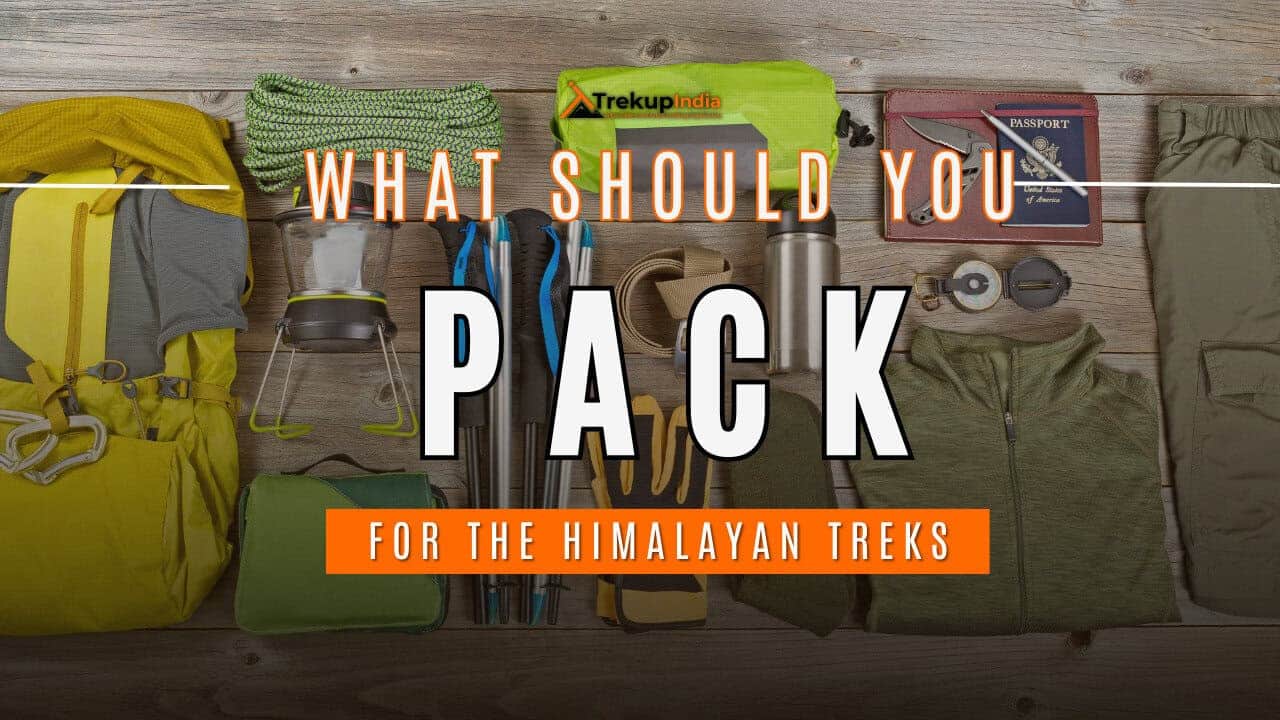
Head Gears
When trekking it's important to carry headgear to protect your head and face.
Heading out for a trek? Don’t forget to carry headgear to protect your beautiful face and head from the sun, wind, and dust! It’s an essential accessory that keeps you safe and comfortable throughout your adventurous journey. So, make sure you pack it before you step out into nature!
- Head Lamps – When trekking at night, headlamps are essential to illuminate your path while keeping your hands free. Headlamps come in different sizes and lumens, so it is essential to choose one that suits your needs.
- Hats or Cap – Caps or hats are also necessary when trekking in different weather conditions. Caps protect your head from the wind and freezing temperatures at night, while hats provide shade and protection from the sun during the day. It’s essential to ensure that your hat has a strap to prevent it from being blown away by the wind.
- Sunglasses – Sunglasses are also essential for trekking. Your sunglasses should protect your eyes from harmful UV rays and fit your face perfectly to avoid falling off while climbing, jumping, or crossing obstacles. The glass of your sunglasses should also be designed for different weather conditions to provide optimal visibility.
- Buff / Balaclava – Lastly, a buff or balaclava is a must-have to protect your mouth or neck from extreme temperatures and keep them warm. Buffs and balaclavas come in different materials, thicknesses, and designs, so it’s important to choose one that suits your needs and preferences. Depending on the weather conditions and your activities, you can wear them as neck warmers, face masks, or headbands.
Clothes
When trekking in high altitudes, prepare for cold weather by wearing layers. Layering traps heat, keeps you warm, and allows you to easily adjust your clothing as temperatures fluctuate.
Layering is important for different seasons when trekking. When planning a high-altitude trek, it is important to prepare for the cold weather. Wearing layers is the best approach as it provides both protection and flexibility when the weather changes frequently in the mountains. Layering helps to trap heat and keep your body warm, while at the same time allowing you to easily adjust your clothing as the temperature fluctuates. By wearing layers, you can enjoy your trek comfortably and stay safe in the unpredictable mountain weather
- For spring, summer, and monsoon treks, consider wearing three layers: a woollen sweater, a fleece, and a padded jacket.
- For autumn treks, add one more fleece layer to make it four layers.
- For winter treks, you may need five layers with thermals, a woollen sweater, two fleeces, and a padded jacket.
- T-shirt/sleeve shirt– Bring three T-shirts and two quick-dry trek pants, wearing one and carrying the others. Long sleeve shirts help to protect from sun UV rays. We recommend synthetic T-shirts as they get dry quickly when they get wet.
- Hiking / Trekking Jacket– down jackets (-5 to-10 C) or two-three-layer jackets.
- Thermals– at least two pairs of thermals help keep the body warm during cold weather.
- Undergarments– you can carry them according to your habitual and hygiene requirements.
- Gloves– 1 pair of gloves will keep your hand warm and nice.
- Trek Pants– Bring 2 to 3 comfortable trekking pants. Trekking pants play a significant role, as they are designed for comfort and mobility, making trekking easier. It should be Synthetic so that it gets dry quickly when wet.
- Rain Wear– you can carry a raincoat or Poncho. During long rains and snowfalls, the waterproof jackets start leaking. Still, the Poncho and raincoats keep you dry, so choose accordingly.
Tip: If you choose a raincoat on your trek, carry a small waterproof cover so things inside your backpack can’t get wet. If you carry a Poncho, you don’t need to worry. It protects both you and your backpack.
Foot Gears
When it comes to planning a trek, one of the most important aspects is to ensure that you have the right kind of foot gear.
- Trekking shoes which are waterproof and have ankle support. Walking / Hiking sandals which can be used off the trek, i.e., in the morning and evening hours when you reach the campsite, basically to get your feet rest from heavy boots, sometimes used for crossing streams and rivers, it’s more comfortable and safer than crossing barefoot or wetting your shoes. Sneakers (Optional) can be worn for normal driving days or used around the camp.
- Socks– you should at least carry 3 to 4 pairs.
- Microspikes & Gaitorswill be provided by Trekup India when required. You don’t have to carry them.
Personal First Aid Kit
Don't forget to pack your personal first aid kit! It's always better to be safe. So, make sure you're prepared for any unforeseen circumstances.
Below are some common medicines generally required/used during your adventure trip; however, please consult your doctors prior.
- Antiseptic towel or water syringe (to clean the wound)
- Butterfly bandage for a small cut
- Cotton and elastic bandages and sterile gauze pad for larger wounds
- Latex gloves are used when the wound bleeds.
- Medicine for Diarrhea (Upset stomach)
- Medicine for cold, flue/fever, headache
- Some pain killers
- ORS pouches
- Quick pain relief spray (External use)
- Any personal medicine prescribed by your doctor
- Dimox / Similar for high altitude sickness
- Bug Repellent
- Carry some nutria/energy bars and drinks (non-alcoholic)
- Note: Kindly consult your doctor before purchasing or taking any medicine.
Gadgets and Other Items
You might also consider bringing a camera, binoculars, portable charger, and snacks. Be well-prepared and tackle any trail with confidence.
- Trekking Poles
- Mobile phone
- Camera
- Spare batteries for phone and camera, power bank
- Lightweight flashlight or headlight
- A waterproof bag made of plastic is used for the camera.
- Plug/converter for electrical items
- 1-litre water bottle
- A journal with a pen would be a good idea to keep your notes.
- Some book of your interest for the ideal time
- Get into the habit of maintaining a Map and guidebook of the region.
Hygiene & Personal toiletry
Remember to pack hygiene and personal toiletry items such as soap, shampoo, toothbrush, toothpaste, deodorant, and toilet paper.
- Sunscreen with UV protection to shield your skin from harmful rays
- 1 or 2 small quick-drying towels to help you dry off quickly in case of rain or sweat
- Toilet paper, tissues or wet wipes for maintaining hygiene while on the trek
- Toothbrush, toothpaste, and mouth freshener to keep your mouth clean and fresh throughout the journey
- Deodorant or talcum powder to help you stay fresh and odor-free, especially during hot and humid climates
- Shampoo to keep your hair clean and healthy
- Sanitary pads or tampons (for female trekkers) to manage menstrual cycles
- Lip-gloss or salve to protect your lips from dryness and chapping
- Bio-degradable soap to keep yourself clean and hygienic while on the trek
- Nail clipper and other personal items that you use daily
Compulsory Documents to Carry
There are certain documents that you should always carry with you. These documents are not only necessary for your safety and security, but they may also be required by local authorities.
These files must be submitted to the Forest Department before your trek. With none of these, you will not be permitted to trek—original and photocopy of government photo identity card. Carry IDs like Aadhaar, voter ID, etc.
How To Plan Your Trek & Reach Manali
By Air:- Bhuntar Airport, Kullu, is the nearest airport to Manali by flight and is located almost 50 km away from Manali and 11 km from Kullu. However, if you plan to reach Manali by flight, it is better to come one day in advance.
By Train:- If you want to reach Manali from Delhi by train, you can catch the train from New Delhi Railway Station to Jogindernagar Railway Station, 5 hours away from Manali. You can check the railway chart and book accordingly; booking in advance is better.
By Bus:- From Delhi, you can find a regular bus service to Manali. ISBT Kashmere Gate is the central bus station in Delhi, from where you will find both AC and non-AC buses for Manali. There are two different routes that you can take from Delhi, Chandigarh, Dehradun, and Ambala.
However, taking government buses from Kashmere Gate ISBT is always better. The bus will drop you at Manali, and then we will send our staff to pick you up from Manali Bus Stand.
Fitness Required & Preparation Guide For Deo Tibba Base Camp Trek
If you’re preparing for a Deo Tibba Base Camp Trek, Trekup India recommends jogging as part of your fitness routine. Jogging helps work out the same muscle groups that you’ll use during trekking and can help you build endurance. You don’t need any special equipment to get started.
Fitness Target
Trekup India has put the Deo Tibba Base Camp Trek into an moderate grade-level trek.
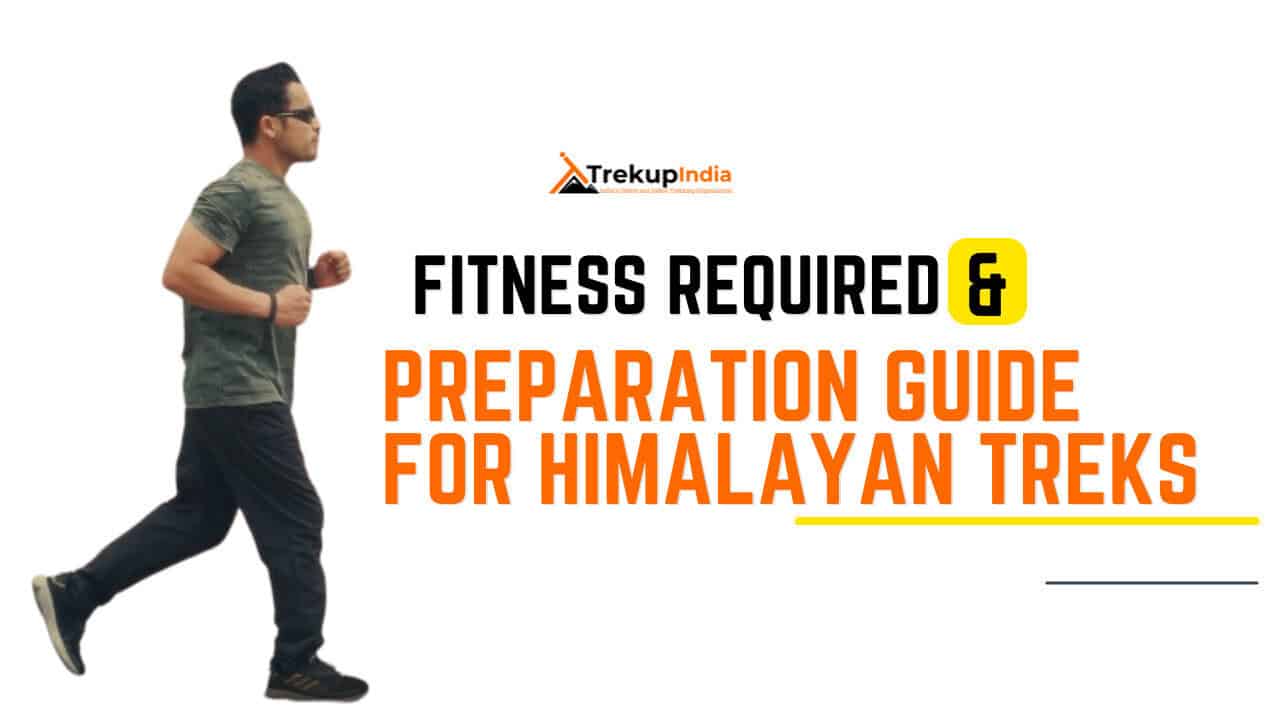
For Moderate – Difficult Treks – In order to be well-prepared for your upcoming trek, it is recommended that you focus on building your endurance by aiming to cover a distance of 4.5 kilometers in less than 40 minutes. This will help you to develop the necessary stamina and strength required to successfully complete your journey.
How to Achieve This Fitness Target?
To start preparing for your trek:
- Try jogging for at least five days every week.
- If you find 5 km too difficult at first, begin with 2 km and gradually increase over 2-3 weeks.
- Once you feel more comfortable running 5 km, focus on improving your speed gradually on a daily basis.
It is important to ensure that you can consistently complete 4.5 km in under 40 minutes for at least two weeks before your planned trek. Allow yourself 6-8 weeks to prepare physically for the journey.
Strength Training exercises that benefit Trekking
Trekking is an activity that demands a good level of strength.

Trekking is a demanding activity that requires good cardiovascular endurance, muscular strength, and overall fitness. To help you prepare for your trek, incorporating bodyweight exercises into your training routine can be an effective way to build strength, improve stability, and enhance endurance, all of which are crucial for a successful trek. In this regard, here’s a breakdown of body weight exercises categorized by the specific body parts they target and the benefits they offer during trekking.
1. Lower Body Exercises
Lower body exercises like squats and lunges are great for building lower body strength, essential for trekking.
a. Squats
Squats are an excellent exercise for building lower body strength, essential for trekking. They target the quadriceps, hamstrings, glutes, and calves. Solid quadriceps and glutes provide power for ascending and tackling uphill climbs, while vital hamstrings aid stability during descents. This is particularly helpful in navigating uneven terrain during trekking.
How to perform Squats Exercises:
- Stand with feet shoulder-width apart, toes pointing slightly outward.
- Lower your body by bending your knees and hips, keeping your back straight.
- Lower until your thighs are parallel to the ground or as low as comfortable.
- Push through your heels to return to the starting position.
b. Lunges
Lunges target the quadriceps, hamstrings, glutes, and calves. They improve lower body strength, balance, and stability, crucial for maintaining control on rocky trails and steep slopes. Additionally, they enhance flexibility, reducing the risk of injury while trekking.
How to Perform Lunge Exercises:
- Stand with feet hip-width apart, hands on hips or sides.
- Take a step forward with one foot, lowering your body until both knees are bent at 90-degree angles.
- Push through the heel of your front foot to return to the starting position.
- Repeat on the other side, alternating legs.
2. Upper Body Exercises
Upper body exercises such as push-ups and pull-ups effectively strengthen the upper body, especially the chest and shoulders, which are essential for carrying a backpack during treks.
a. Push-Ups
Targets: Chest, shoulders, triceps, and core.
Benefits for Trekking: Push-ups are an effective exercise to strengthen the upper body, especially the chest and shoulders, essential for carrying a backpack during treks. Improved upper body strength will also help maintain posture and stability while traversing challenging terrain.
How to Perform Push-Ups Exercises:
- Start in a plank position with hands shoulder-width apart and body in a straight line from head to heels.
- Lower your body by bending your elbows until your chest nearly touches the ground.
- Push through your palms to return to the starting position.
- Keep your core engaged throughout the movement.
b. Pull-Ups/Bodyweight Rows:
Targeting the back, biceps, and shoulders can significantly benefit trekking. You can strengthen these muscle groups by performing pull-ups or bodyweight rows and improve your posture and balance while carrying a backpack. Additionally, more muscular back muscles can help reduce the risk of back strain and fatigue during long treks, making your journey safer and more comfortable.
3. Core Exercises
Core exercises like planks and Russian twists can help strengthen the core muscles, which are crucial for maintaining stability and balance while trekking on uneven terrain.
a. Planks
Targets: Abdominals, obliques, and lower back.
Benefits for Trekking: Planks are an effective exercise that helps strengthen the core muscles. These muscles are crucial for maintaining stability and balance while trekking on uneven terrain. A strong core also helps improve posture, reducing the risk of back pain and fatigue during extended hikes.
How to Perform Planks Exercises:
- Start in a plank position with elbows directly under shoulders and body in a straight line from head to heels.
- Engage your core and hold the position, avoiding sagging or arching the back.
- Keep breathing steadily and hold for the desired duration.
b. Russian Twists
Targets: Obliques, abdominals, and lower back.
Benefits for Trekking: Russian twists engage the core muscles, particularly the obliques, improving rotational stability and balance. Enhanced core strength helps prevent injuries and improves overall performance during trekking.
How to Perform Russian Twist Exercises:
- Sit on the ground with knees bent and feet flat, leaning back slightly to engage the core.
- Clasp hands together and twist the torso to one side, bringing the hands towards the ground beside the hip.
- Return to the centre, then twist to the other side.
- Continue alternating sides for the desired number of repetitions.
4. Full Body/Cardiovascular Exercises
Full-body/cardiovascular exercises like burpees and mountain climbers are excellent for improving cardiovascular endurance, strength, and agility.
a.Burpees
Burpees are an excellent full-body exercise that targets your legs, chest, arms, and core. This exercise dramatically benefits trekking enthusiasts, improving cardiovascular endurance, strength, and agility. Regularly incorporating burpees into your workout routine can enhance your overall fitness level, which can help you endure long hikes and rugged terrains with ease.
How to Perform Burpees Exercises:
- Start in a standing position.
- Squat down and place hands on the ground.
- Jump feet back into a plank position.
- Perform a push-up.
- Jump feet back to the squat position.
- Explosively jump up into the air, reaching overhead.
- Land softly and repeat the sequence.
b. Mountain Climbers
Mountain climbers target the core, shoulders, chest, and legs. This dynamic, full-body exercise can significantly improve cardiovascular endurance and agility. It is an excellent functional workout for trekking preparation as it engages both the upper and lower body muscles while strengthening the core muscles.
How to Perform Mountain Climbers Exercises:
- Start in a plank position with hands shoulder-width apart and body in a straight line from head to heels.
- Drive one knee towards the chest, then quickly switch legs, alternating in a running motion.
- Keep the core engaged and the hips stable throughout the movement.
- Continue at a moderate to fast pace for the desired duration.
Incorporating bodyweight exercises into your training routine can help you build strength and endurance and prepare your body for the physical demands of trekking. Consistency and proper form are crucial to maximizing the benefits of these exercises and ensuring a safe and enjoyable trekking experience. Engaging your core muscles, including obliques, abdominals, and lower back, with Russian twists can improve your rotational stability and balance, preventing injuries and enhancing overall performance during trekking.
When incorporating strength training exercises into your workout routine, it’s essential to maintain proper form and technique to avoid injury. Start with lighter weights and gradually increase the intensity as you progress, focusing on compound exercises targeting multiple muscle groups simultaneously. Some examples of practical strength training exercises for trekking include squats, lunges, deadlifts, and pull-ups.
Remember to give your muscles time to recover between workouts, and remember to stretch before and after your workouts to prevent injury and improve flexibility. Combining strength training with jogging and proper stretching allows you to take your fitness to the next level and confidently tackle even the most challenging treks.
Our Trekkers Reviews And Expreinces
Food Provided by Us During Trek
We provide only Indian vegetarian food, and your meal will mainly consist of Indian bread, vegetables, lentils, rice, and a delicious dessert. During your trek, we will serve three meals a day, including breakfast, lunch, and dinner. You will also be served tea, snacks, and lip-smacking soup in the evening before dinner. If it is a long day of trekking, you will be given a packed snack.
After extensive research on the trekkers’ nutritional requirements, we prepare the menu. Before putting all the meals together, we also consider the altitude and the weather.
The meal we serve during the trek is perfectly balanced with calories, carbohydrates, vitamins, protein, fibre, and minerals. You need to know that all our cooks have great expertise in cooking and have undergone thorough training. So, get ready to enjoy delectable and lip-smacking dishes during your trek. You will be served with lemon tea in the tent to start your day with a refreshed feeling. Before leaving the campsite for trekking, you will be given a hot finger-licking breakfast like upma, Aallu Prantha, Besan Chilla, Poha, Daliya, Corn flakes, and Maggie, along with tea or coffee.
If your trek is longer, we also offer some fresh local fruits such as apples and healthy drinks like Frootie or Maaza. In the afternoon, you will be served a simple & healthy lunch, while at around 04:00 pm, you will be given tea and a light evening breakfast. After you reach your campsite at night, you will be served a hot and delightful dinner.
After reading this, you must have understood the food we provided on the trek; you don’t need to worry about food. Many trekkers repeatedly trek with us because of the food we provide. Thus, we will give you unforgettable experiences.
Safety During Deo Tibba Base Camp Trek
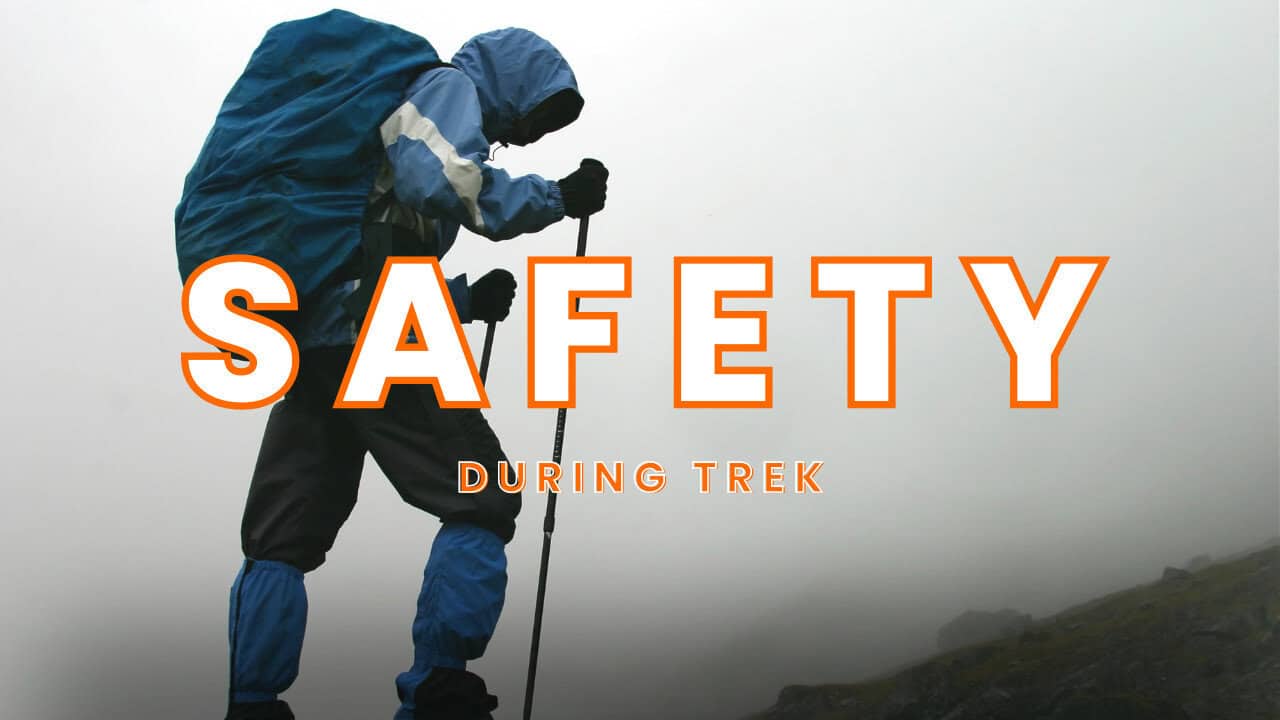
Trekking with us for the Deo Tibba Base Camp Trek is entirely safe because we have a team of trek leaders qualified in Wilderness first-aid and complete information about the high-altitude glitches. During the trek, we carry a full first-aid kit that contains all the essential medicines. Before trekking with us, you must ensure that you are medically fit for the trek; for us, your medical fitness is more important than anything else.
Right from our establishment, we at Trekup India have been continuously introducing new safety practices into Indian trekking to ensure the safety of voyagers. Trekup India introduced microspikes and made emergency bottled oxygen mandatory for all treks. Our trek leaders take your daily Pulse oximeter reading. We at Trekup India introduced the radio walkie-talkie as a safety communication device.
How can we ensure that your trek is safe with us?
We have noticed that most trek-organizing organizations do not follow these systems, but with time, they are following us; several competing companies are adopting these practices and organizing great, safe treks.
We ensure complete technical safety in the mountain. Our company has a vast team of more than 100 guides and trek leaders who serve on Himalayan treks. One of the best things about our team is that all the members are trained professionally by the Nehru Institute of Mountaineering, Indian Mountaineering Foundation Delhi, and Hanifle Center Outdoor Education Mussoorie.
Explore our New Safety Protocols
To ensure a perfect Trek, we have introduced some new safety checks to ensure excellent safety for our trekkers.
Our On-trek safety checks include:
- Daily oxygen saturation, along with pulse readings
- Stretchers team appointed on every trek
- Radios
- Trained mountain staff and complete safety
- Additional oxygen cylinders
- Special medical kit for high-altitude treks
- Microspikes on all types of snow treks
- Experienced Trek leaders, as well as safety
- Technical team on all snowy slopes
For Us, Your Safety Is the Top Priority
At Trekup India, you will find a team with local knowledge and fluency in English and Hindi. This helps ensure that you have a fantastic trek. Not only this, but we also pay attention to your health and safety because this is something we cannot ignore. All the team leaders involved in trekking have already undergone several professional courses in first aid, portable altitude chamber training, CPR, environmental awareness training, and advanced wilderness emergency medicine.
We also carry a complete first aid medical kit on every trek and trip we organize. Apart from the medical kit, we take a portable altitude chamber (if needed) and medical oxygen for all high-altitude treks. Our company has significant expertise in organizing all sorts of group adventure holidays for family groups, school and college groups, and friend groups. We have many travel options that suit different fitness levels and travelling styles.
Regardless of the group size, we value each and every member of our trekking groups. Our commitment to personal attention ensures that your needs and safety are always our top priority.
Who we are?
Trekup India has been a stalwart in the Adventure Tourism industry for 30 years. Since our inception, we have been dedicated to providing top-notch treks, voyages, trekking programs, and high-altitude expeditions. Our extensive experience is a testament to our commitment to your adventure and safety.
We organize treks in Uttarakhand, Kashmir, Sikkim, and Himachal while being part of the trekking community; we feature more than 75 documented Himalayan treks. In addition to other outdoor activities, our company also organizes trips for schools, colleges, and families.
Therefore, we maintain the quality of services offered to our valuable customers.
Must Read These Information Of Deo Tibba Base Camp Trek
Why You Should Deo Tibba Base Camp Trek?
1. Enjoy the stunning mountain scenery while on the trek
Many treks in the Himalayas offer breathtaking views. The Kashmir Great Lakes, however, is a different scale. The mountains of Kashmir look like this. You can feel their presence all around you. It is not exaggerated to say that a trek through Kashmir is like viewing IMAX on a TV while everything else is on a regular TV screen. Kashmir is a place you can feel it all
2.The diversity of the valleys, meadows
Seven trekking days are required for the Kashmir Great Lakes trek. You will also be trekking in seven different valleys. Each valley is spread out over the course of the trek. Each valley is a tough competitor to the one before it.
Six of the seven valleys that you can trek are distinct grasslands, or meadows. These meadows and grasslands at high altitude are linked by high passes. You would expect meadows to be the same on both sides of a pass. They aren’t. Each of them has its own world and charm.
You can start with the Shekdur meadows, also known as tabletop set among Maples and Birch trees. The Nichnai grasslands are a great example of how large and rugged meadows can get. Cross the Nichnai pass to enter a meadow you won’t want.
The Vishnusar grassland is a wide, grassland that descends gently, rich in wildflowers, and has a gentle stream running through it.
The Gadsar meadow has a more dramatic appearance. It is narrower and has more jagged mountains on its sides. The central landscape is dominated by a large Gadsar, but it leads to many smaller lakes. Wildflowers bloom throughout the valley.
You will be transported to the top of the Gadsar valley by climbing up“Windows wall paper”Valley of Satsar. Satsar meadows are characterized by a smooth, manicured green lawn with a few maple trees and horses enjoying the graze. I have never seen greener grass elsewhere.
The Gangabal expanse is the last grassland. The valley below Zaj pass is almost like looking at the green world map. Gangabal in the blue looks just like Africa! Nandkol is on its side. The green landscape is also dotted by 4 lakes.
For me, the meadows at the trek are the best and most important reason to love KGL.
3. The lakes
The lakes are a must-see in any discussion about the Kashmir Great Lakes Trek. Before my exploration began, I only saw a few photos of the lakes and thought they were photoshopped images from a Scandinavian country. These lakes were not found in our mountains. These lakes at high altitude change color throughout the day.
Clear at dawn, sea green by afternoon, light blue by evening, and then inky blue by night. You will be amazed at the stunning lake scenery of Vishnusar, Kishansar, and the sea-green Gadsar with its ice floes.
4. The colors in Kashmir Great Lakes
KGL can be done best in July/August or early September. These months are monsoon in India, but the rains on the Pir Panjal side get much less. The mountains still get their summer rains, and the flowers explode into a rainbow of colors.
Different colors can be found in different valleys. There are pinks, purples and yellows as well as whites. The flowers change with the seasons. The colors of the sky and grass, rocks, water, and water all add to the beauty of the trek. It is not difficult to believe that Kashmir’s green is more vibrant than Kashmir’s blue. Each color is vividly saturated.
The vibrant colors of the Kashmir Great Lakes Trek will be a big hit with you.
Best time to do Deo Tibba Base Camp Trek
To ensure a successful and enjoyable Kashmir Great Lakes trek, it’s crucial to timing your journey appropriately. The best time to embark on this adventure is during the monsoon season, specifically the months of July, August, and September. These months offer pleasant weather conditions and clear skies, allowing you to take in the stunning vistas of the surrounding mountains and lakes. However, it’s always important to check the weather forecast before embarking on your trek to ensure a safe and memorable experience.
Frequently Asked Questions About Deo Tibba Base Camp Trek
What is the duration Of the Deo Tibba Base Camp Trek?
Its a 5 night and 6 dyas trek.


